The Medicare Trust Fund (TF) Annual Trustees report on solvency drives much of the discussion about Medicare payments. Therefore, it’s important and appropriate to understand the underpinnings of the report in order to best understand and engage in the discussion.
Trust Fund operation and Trustees
Trustees – There are six trustees for the TF who in theory act in a fiduciary capacity for Medicare beneficiaries in their oversight of the trust fund. Four of these trustees do so by virtue of their positions within the government. These are: the Secretary of the Treasury, the Secretary of Labor, the Secretary of the Health and Human Services (HHS) and the Commissioner of Social Security plus two other public trustees. Currently the two public trustee positions are vacant. Note that the first four trustees (a majority) are appointed by the President (with confirmation by the US Senate).
Operation of the TF – Monies flow into the TF from employer payments attributable to the Medicare portion of Social Security taxes withheld from each employee and self-employed worker and paid to the Federal government. The monies are then used to pay hospital, physicians, and other Medicare providers payments for services provided to Medicare beneficiaries. Any excess of inflows over outflows is immediately borrowed by the rest of government and used to fund the rest of government’s activities (and the Federal budget is currently and has been incurring at huge annual deficits). The government leaves the TF a note (an IOU representing a pledge on behalf of future taxpayers) for what is theoretically borrowed.
The interest rate paid to the TF is set by the rest of government with the concurrence of the Medicare TF Trustees. The interest theoretically paid to the TF appears in the federal budget as part of interest on debt and drives a portion of federal expenditures and so the annual budget deficit. Curiously, I note the fiduciary responsibility of the majority of the Trustees who are appointed by the President. By virtue of their position, when they agree to a low interest rate it positively impacts the President’s budget, but they can also have a potentially conflicting fiduciary responsibility to the Medicare beneficiaries through appropriate management to the TF assets which presumptively includes getting as high an interest rate as possible, which will insure the solvency of the TF for longer.
Medicare Rates. The Medicare program is administered by the Secretary of HHS who sets the rates paid to all Medicare participating providers who then must accept those rates as payment in full (subject to applicable statutory deductibles and copayments).
Independent Actuarial Opinion
The Annual Trustees report includes the forecasts and status of the TF as viewed by the Trustees. However, the TF is required to have an independent actuarial opinion by the Chief Medicare Actuary. This opinion is generally the last page of the report, and is typically only one page, (for 2023 you can find it on page 267 along with added alternative projections). While this mostly goes unnoticed what it says is critical to interpreting what the Trustees had to say.
To assure independence and because previous Presidents and Administrations have attempted to control the Actuary, the US Congress changed the law and made the Office of the Actuary independent from the Medicare program which the President controls via the Secretary of HHS.
For 2023, the Trustees report suggests that the TF will be solvent for two years longer than previously expected (a positive note). So far so good. However, to fully understand the situation one needs to look to the Actuarial opinion in that report for guidance (which appears on page 267 – the very last page of the report). The opinion on solvency states:
“The annual reports of the Board of Trustees and the accompanying Actuarial Opinions have cautioned for a number of years about the challenges of adhering to the current-law Medicare payments updates, especially in the long range. For physician services, not only are the updates below the rate of inflation in all future years, but there are more immediate concerns because the updates for these services are projected to be negative for 2024 and 2025. Furthermore, additional payments totaling $500 million per year to one group of physicians and annual bonuses to another group are scheduled to expire in 2025 and 2026, respectively. Should payment rates prove to be inadequate for any service, beneficiaries’ access to and the quality of Medicare benefits would deteriorate over time, or future legislation would need to be enacted that would likely increase program costs beyond those projected under current law in this report. [Emphasis Added]”
What the Actuarial Opinion Says
In plain language, the payment rates under current law are required to be set too low and that may be why the solvency looks so good – the added two years of solvency. However, adhering to those low rates could cause access to care problems for Medicare beneficiaries because physicians (across specialties) and other providers may stop accepting Medicare beneficiaries. This phenomenon has already begun in select areas and limiting access to Medicare beneficiaries at a time when they most need such access may not be in their best interests.
Questions to Answer
Given the above actuarial statement, the questions that arise to me include:
1) Why aren’t we talking about this?
2) Is the TF status as good as the two added years of solvency implies, or is it actually worse and if so, how much worse?
3) What is the true potential loss of access to providers and services by Medicare beneficiaries mentioned in the Actuarial Opinion above?
4) Given what the actuary has said, are the Trustees fulfilling their fiduciary responsibilities to Medicare beneficiaries?
Things to think about.
Featured news
Ted’s Take: A guide to philanthropy from a philanthropist
Let’s face it, philanthropists or large contributors, get asked for money virtually in every conversation.
Ted’s Take: What do Fighting a War, EVs and Heath Care have in common?
Answer – The need for infrastructure. Without it, things fail.
Ted’s Take: The easy way out
Let’s face it, there will always be problems in our lives and our country that need to be addressed. When they arise, we need to look at the situation clearly and honestly.

Jayne Koskinas Ted Giovanis
Foundation for Health and Policy
PO Box 130
Highland, Maryland 20777
Media contact: 202.548.0133


